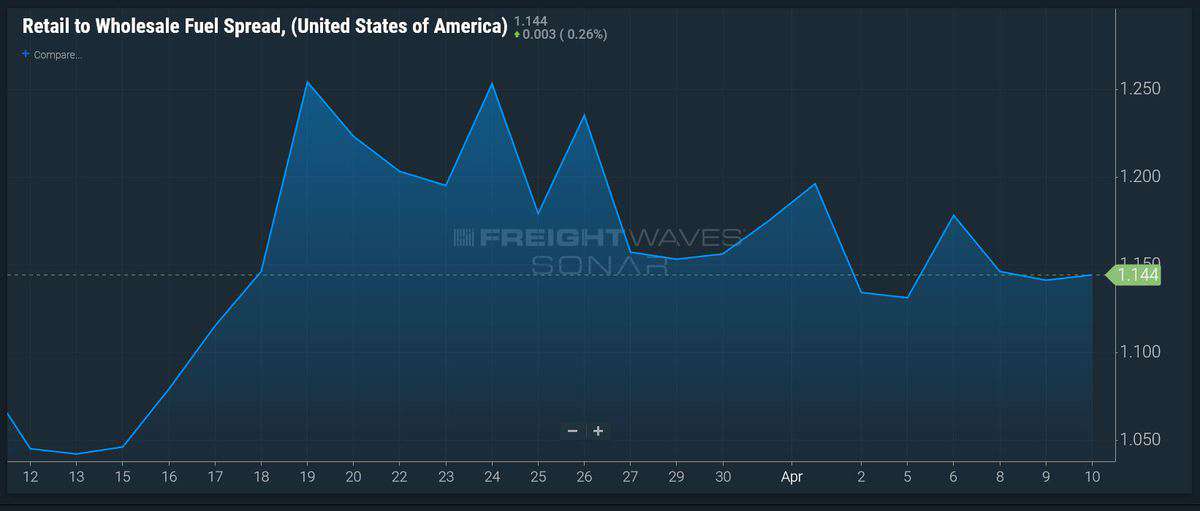The weekly average retail diesel price published by the Department of Energy’s Energy Information Administration fell for the third consecutive week.
After a 20-week run of increases, a record in the series that dates back to 1994, the weaker market has followed with three weekly drops. In the most recent number published Monday by the EIA, the average weekly price was $3.129 per gallon, down 1.5 cents from the prior week.
With the three consecutive declines, the average weekly price of diesel has shed 6.5 cents. It peaked at $3.194 per gallon. The DOE/EIA diesel price is the basis for most fuel surcharges.
The DOE price has declined far less than the price of ultra low sulfur diesel (ULSD) on the CME commodity exchange. The recent high price for that benchmark number was $1.9675 a gallon, recorded one month ago from Monday, on March 12. Since then, it has declined to as low as $1.7713 per gallon, and on Monday settled at $1.8115.
While those numbers appear to signal that retail diesel is out of whack with the commodity market, the FUELS.USA spread in SONAR between retail and wholesale diesel prices has recently been around $1.15 per gallon, which would be considered in the range of “normal.”

Oil prices have been surprisingly stable for several weeks. There is no pending news out of OPEC and its OPEC+ brethren; they made their decision to raise output a few weeks ago and those steps will be implemented through July.. The expectation of stronger demand as the pandemic fades is seen as largely built into the price.
As a result, the benchmark crude oil Brent price has traded steadily in a range between $60 and $64 per barrel since March 18. The commodity price of ULSD on CME has been between $1.78 and $1.82 per gallon for virtually every day during that period.
One number that does stick out in recent days: the spread between front-month ULSD and the price 12 months out. The forward price is not a prediction of where a commodity will be. Instead, it is a complex function of interest rates, to some degree, but far more of inventories.
Since March 22, with one exception, the settlement for ULSD on the CME has been in a structure known as contango, with the front-month price less than the 12-month price. Prior to that, as inventories were tightening, the market was in the opposite structure known as backwardation.
The contango in the diesel market just a few days ago was in excess of 7 cents per gallon, a sign that inventories were plentiful. But on Monday, it narrowed to 2.2 cents, coming down from more than 6 cents just a few days earlier. It may just be a temporary move that will reverse itself, but it was sharp enough in such a short period of time that it does merit watching.
More articles by John Kingston
Big premium on sale of ORBCOMM didn’t catch everyone by surprise
Three-person office of the CEO to run Covenant but Parker retains post
Towing fraud, staged accidents targeted by new coalition that includes ATA











